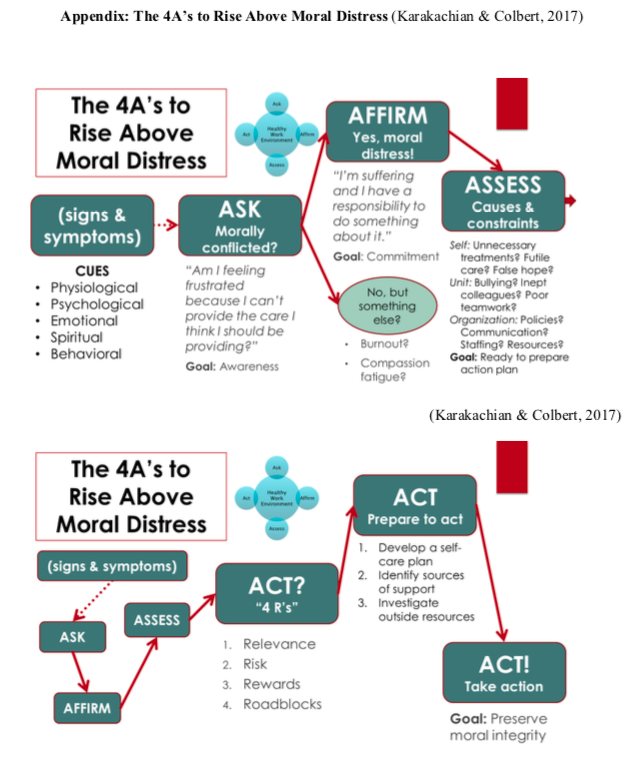Moral Resilience Formation for Novice Staff Nurses
By Richard P. Becker, DNP, MS, MA, RN
Assistant Professor of Nursing
Moral distress is an interior affliction associated with exterior conflicts between one’s values, obligations, and actions. It affects nurses of all ages and experience levels – including Christian nurses and nurses from every religious background. Moral distress is on the rise, negatively impacting nurses directly and patients indirectly. Novice nurses are particularly susceptible to moral distress because of their relative inexperience and limited prelicensure formation in ethics. More can be done to mitigate the impact of moral distress on novice nurses, especially through helping them build up their moral reserves and nurture moral resiliency. 
The Covid-19 pandemic represents a healthcare crisis that is sapping the interior reserves of nurses around the world, particularly in terms of the ethical challenges involved – ethical challenges that many clinicians have rarely, if ever, considered or faced (Berlinger et al., 2020). Even outside of such extraordinary times, bedside nursing frequently leads to ethical quandaries and tensions resulting in moral distress – something that novice nurses are especially ill- equipped to deal with given their lack of experience (MacKusick & Minick, 2010; Shelly et al., 2021).
Healthcare facilities can boost novice nurse coping in this regard through in-depth education and training to expand moral courage, affirm moral agency, and promote moral resilience. Such interventions have been shown to increase job satisfaction which, in turn, can contribute to decreased novice nurse attrition as well as increased nurse retention overall (Rushton et al., 2017).
Contributors:Adapted from Rick Becker's article, "The Impact of Moral Distress on Staff and Novice Nurses," which appeared in the January 2024 issue of Journal of Christian Nursing.
